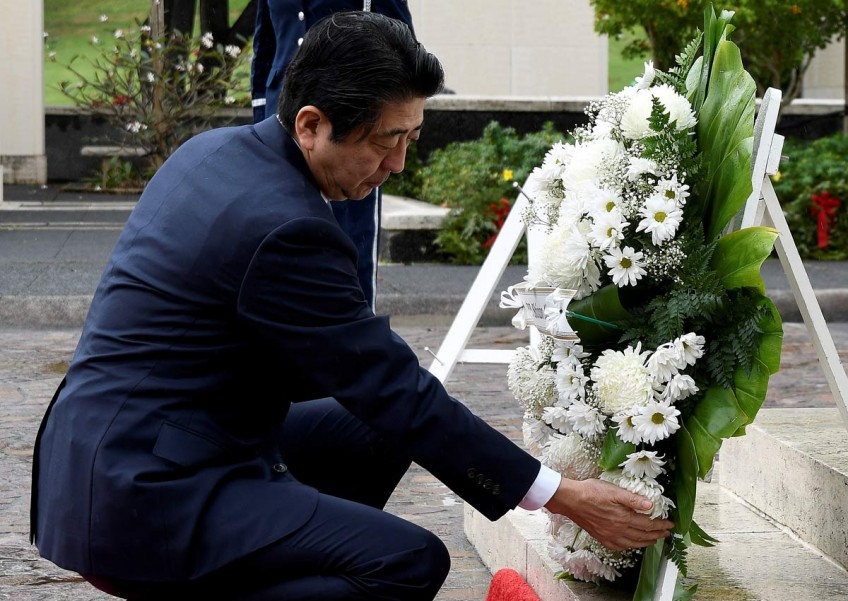Japan's Abe departs for visit to Pearl Harbour

TOKYO - Prime Minister Shinzo Abe departed Monday for Hawaii where he will visit Pearl Harbour with US President Barack Obama as the two countries highlight decades of post-World War II reconciliation.
Abe's visit to the site, which was bombed by Japan in a surprise attack in December 1941 that drew the United States into World World II, was announced earlier this month.
It follows a journey Obama made with him in May to the city of Hiroshima where a US plane dropped the world's first atom bomb as the war drew to a close in 1945.
"I am visiting Pearl Harbor in Hawaii to commemorate victims as the prime minister of Japan, as the representative of the Japanese people," Abe told reporters at Tokyo's Haneda airport.
Read Also: Survivors commemorate 73rd anniversary of Pearl Harbor attack
"We must not repeat the horror of war ever again. Together with President Obama, I would like to express to the world this pledge for the future and the value of reconciliation."
The two leaders hope that their joint visits will underscore the alliance between their two nations forged in the years following the war.
They will meet Tuesday in Honolulu for a summit before venturing together to Pearl Harbour to visit the wreck of the USS Arizona, where 1,177 sailors and Marines died.
The ship's rusting remains are now a memorial.
The two-hour attack killed 2,403 Americans in all, injured more than 1,100 others and sank or heavily damaged eight US battleships.
Officials have said that the purpose of Abe's visit is not to apologise but rather to pay homage to the victims and encourage historical reflection, as Obama did in Hiroshima.
Read Also: Aging survivors mark Pearl Harbor 70th anniversary
It also comes at a delicate time with Obama due to hand over power to US President-elect Donald Trump next month.
The New York real-estate magnate sent shockwaves through Japan during the campaign when he appeared to question the US-Japan security alliance.
He said that Japan should pay more to support US troops stationed in the country and could even consider developing its own nuclear weapons.
Though he later walked back on the comments, they jolted public opinion in the world's only country to ever be attacked with atomic bombs.
Abe became the first world leader to meet Trump after the election, rushing to New York to confirm the importance of the relationship.